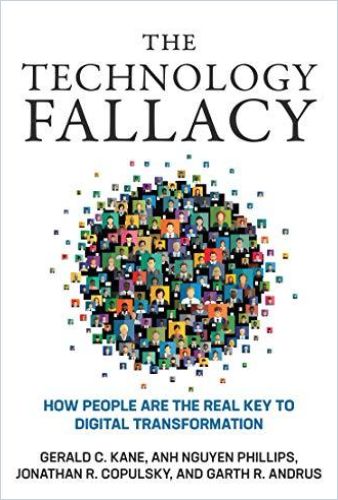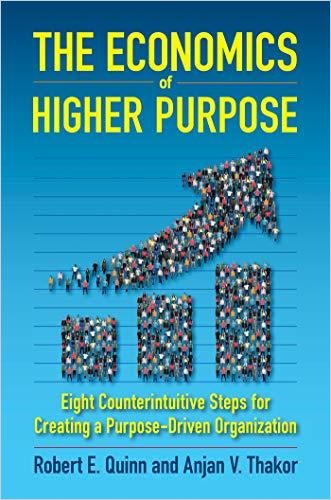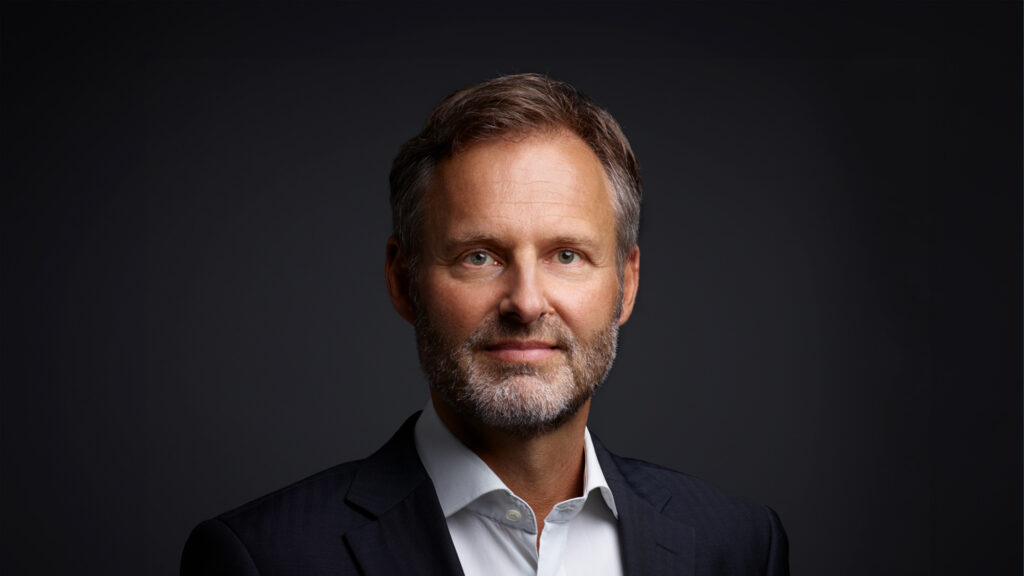“That Normal Does Not Exist Anymore.”

getAbstract: How do we get back to normal? Do we want to?
Vlatka Hlupic: This time is a blessing in disguise. There are many negative aspects, but we do need to focus on the silver lining. The Earth is less polluted, we have more time with family, we do more home cooking and gardening, all of which is good for the soul. The time is allowing us to pause, reflect, regroup and strategize on what the “New Normal” should look like. Speaking about the business side of things, we’ve had to step away from our normal seats in the office. Shifts within organizations are often induced by life-defining moments that propel us to do things differently. It would be wrong to expect to go back to normal, because that normal does not exist anymore.
You speak about a model based on levels, that “command-and-control” organizations are found at lower levels, characterized by restrictive hierarchies and roles, and collaborative, engaged organizations are at higher levels. How can these models and levels be applied to the “New Normal” we are creating together?
By default, many organizations and leaders are propelled towards a Level 4 in the Management Shift framework, even if they are not aware of it. Perhaps they were a Level 3 before and are now moving towards a Level 4. They cannot micromanage because of the remote work many of us have to do now. I hear from people, “Now that I’ve experienced this freedom, I don’t want to go back.” The new normal is to have this freedom, this trust, this autonomy.
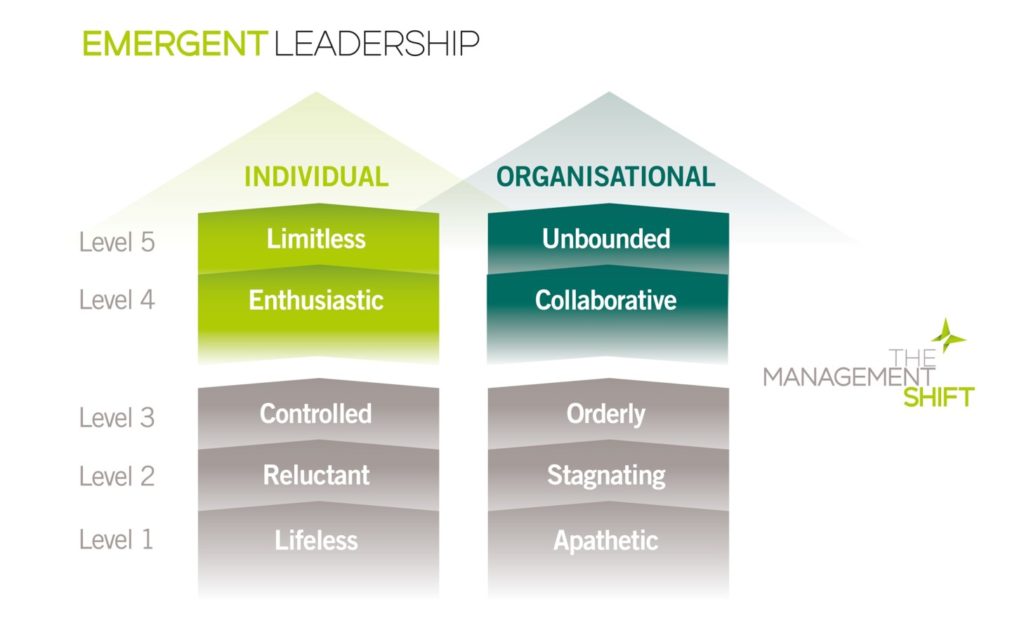
Is there a mismatch between what employees want and the return to a pre-pandemic normalcy that some leaders may want?
The first step in any shift is awareness. Especially now, many people are moving towards Level 4. We are seeing a crack in the wall where the light shines through and shows us how awareness of Level 4 looks. Anyone can start a dialogue and look for a discussion with leaders. My book, Humane Capital, talks about the power each one of us has. This is one of the messages that must be heard most clearly. We all have the power to create ripples of change.
But how? It’s easy to feel powerless in lower levels of management or in a big company.
It is important to become aware that we have the innate power that we can unleash through small actions that can lead to a big impact. Complexity theory shows how this works. I have an example about an employee at a large pharmaceutical company who sent an email saying, “Dear CEO, management is not diverse enough. Our customers are diverse, but management is not. We need to do something.” This message went viral and discussions were started, first informally, then in groups. The message started spreading and management had to respond because the employee had created internal movement. Six months later, she oversaw diversity initiatives and is now an independent consultant, all because of one short email. You have the power to create ripples.
Once ripples start spreading, leaders must listen. Otherwise they will lose people, lose talent and lose engagement. That translates to losing bottom-line profit.
Vlatka Hlupic
HR has changed more in the last few weeks than in the last few years. Will people be valued differently within organizations?
Absolutely. I would certainly hope so. If you look at what people are writing about, everyone is saying the same thing. We need more humane leadership, more humane human resources.
[At this point, my toddler interrupts with a very loud and clearly very important question.]
This is normal! I just had a call with colleagues, and suddenly a cat walks across someone’s desk. We all had to laugh.
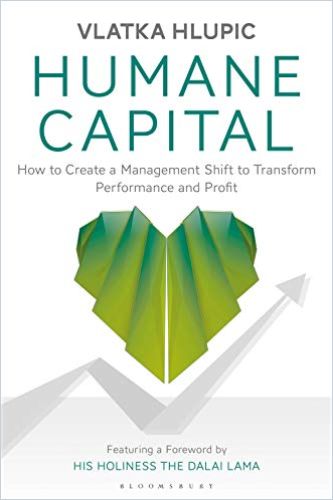
Yes, the way we work in a team has changed. These glimpses into people’s lives have made us grow closer and broken down some formalities.
We are unleashing all this humanity, these insights into people’s homes. Children, pets and work are all intermixing. We are approaching the Fourth Industrial Revolution. The line between work and life is diminishing. As technology increasingly helps us with our work and education, we have this growing need to unleash our humanity. We want to create a world that is better, cleaner, more just, and that needs to ripple out to human – or humane – resources.
Is HR not humane?
In many organizations, HR is very Level 3. People are often seen as numbers on a spreadsheet, but people are in fact sources of value creation. I do believe that HR will become more humane and more people-focused and less process-driven. We were always head driven; we need more heart in the equation. That will allow people to attract and retain talent, and to engage people. That leads to bottom line profit influence, as well as more humane, social-minded companies that are a force for good – as they should be.
When I speak to HR directors, I first tell them to change their job title.
Vlatka Hlupic
Digital transformation has been accelerated. In some companies, which were more resistant to flexible working, new ways of working have had to be implemented very quickly as a result of the crisis.
My view is that technology is there to serve us, to help us be more productive and connect better. Anything related to AI that crosses the biological boundaries of human beings raises many ethical questions. We should adopt technology as long as it serves us, as humanity, and does not control us. We need to unleash human potential and creativity. Technology will never replace empathy, kindness and creativity.
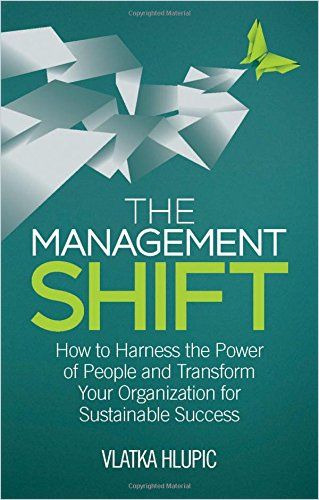
Have expectations changed? Bosses can’t micromanage – are we focusing more on results than presence?
I spoke online to Harvard Business School’s community about work/life balance recently, about how this balance changes as we move through the levels. I used symbols for money and for the heart to illustrate this point. At the lower levels, there is no balance at all. As we reach Levels 4 and 5, we do achieve balance, and we gain more money and a bigger heart. We get more out of life and we do better financially at higher levels because we are more purposeful, more passionate about what we do. We do not see work as work: We see it as our calling. We need to keep boundaries – when we are working from home we need to stop, spend time with our children, go outside and nourish our souls as well.
The World Economic Forum says one of the biggest global health threats is anxiety and related conditions. We know that a lot of stress is related to work. Can recognizing this need for balance help us revert that worrying prognosis?
Do you want the long answer or the short answer? We know from research that millions of people are incapacitated or die as a result of stress largely caused by bad management and bad leadership. Looking at the levels, the lower you are, the more stressed you are. The higher you go, there will be less. Recently some French telecommunications executives were fined due to their implications in a series of suicides committed by employees because they created a deliberate culture of fear in their company.
Most stress is related to work. If we have more humanized workplaces, that will go down. Leaders need to understand this.
Vlatka Hlupic
It’s not just about creating more profitable companies; it’s about saving lives. I hope this pandemic will be an accelerator.
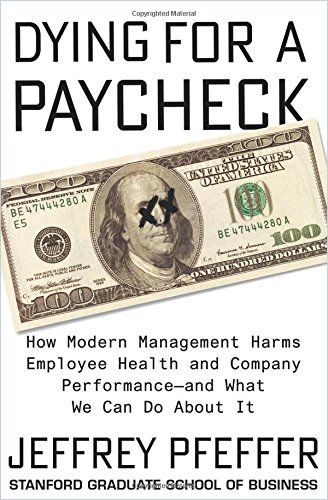
In your book, you painted a picture of sailboats, smaller and more agile organizations, and enormous supertankers where any change in course requires exceptional effort. How can these changes be implemented effectively in very large organizations?
Change can take place in an organic way. Start with one division, one department, one team. You do it well and you capture all the data, the enthusiasm. Then ripples start to spread as you share success stories. Other divisions will want to copy the success and change will accelerate.
Can organizations effectively change, and move up the levels, if they are not also diverse and inclusive?
Diversity plays an important role. It’s especially important to have diversity of thought. Diverse nationalities, genders, ages, qualifications create diversity of thought. A team of engineers, for example, all the same age and from the same background, will speak the same language. We know that more innovation emerges from interactions within diverse teams. Throughout all changes, you need to have sponsorship from the top. You can still make changes and create ripples, but without support from management, it will all take so much longer.
Have we, as a global society, fundamentally changed?
Everything is different now. Businesses that will try to go back to the way things were before will find it nearly impossible. Employees and mind-sets have changed; customers have changed. Companies that are more humane will focus on their purpose, how they can serve humanity and their communities. Ones that investigate balancing stakeholder interests – not just shareholder interests – will be more successful. Command-and-control worked in the First Industrial Economy but now we are in the Fourth. Unless such companies have a complete monopoly then they will struggle to survive as the pandemic has augmented many changes.
If command-and-control business must compete, they will not survive compared to genuine, authentic, mindful companies.
Vlatka Hlupic
About the author
Vlatka Hlupic is Professor of Leadership and Organizational Transformation at Hult Ashridge Executive Education, CEO of The Management Shift Consulting, and the author of Humane Capital and The Management Shift.

